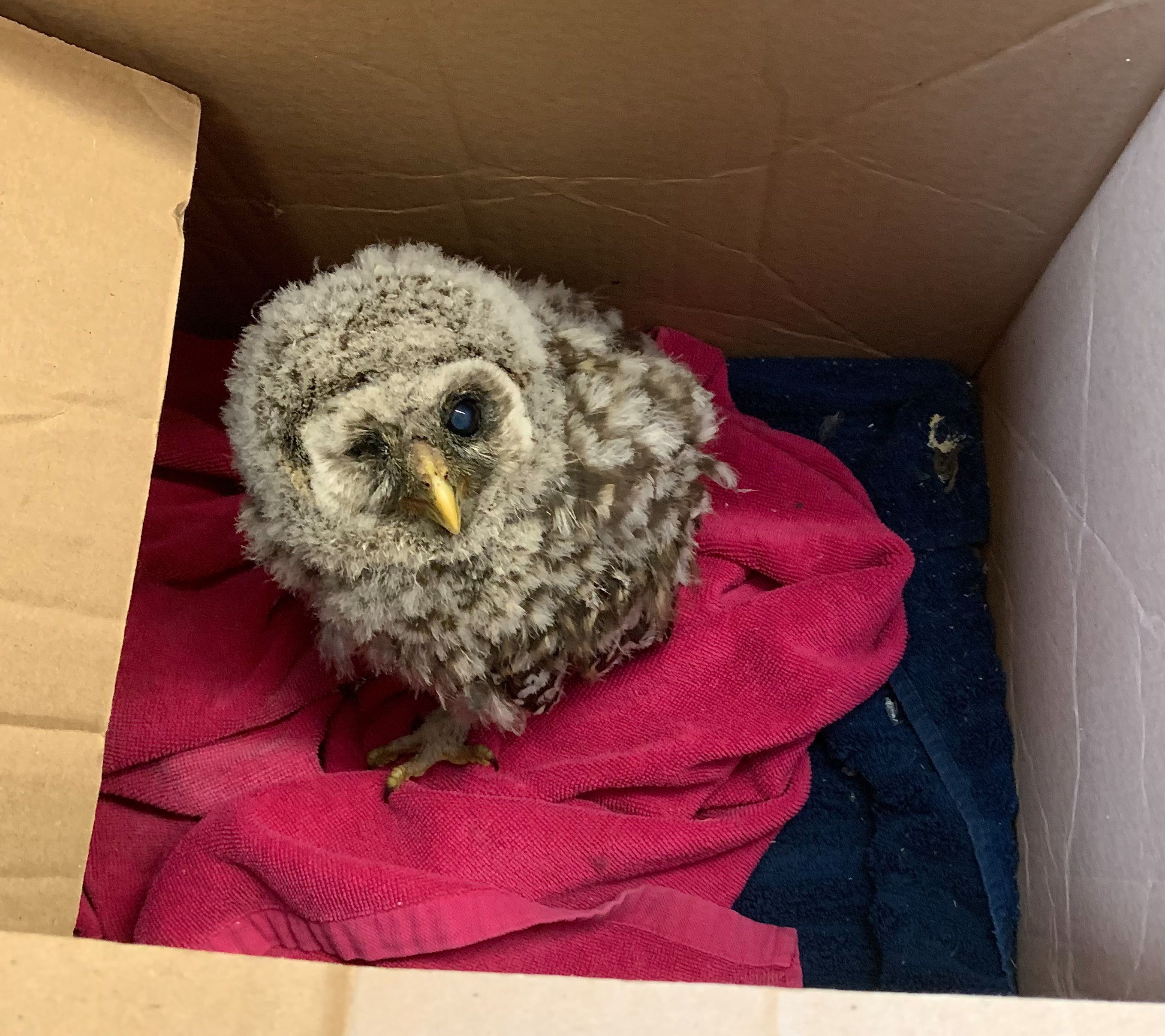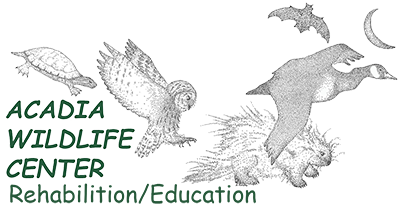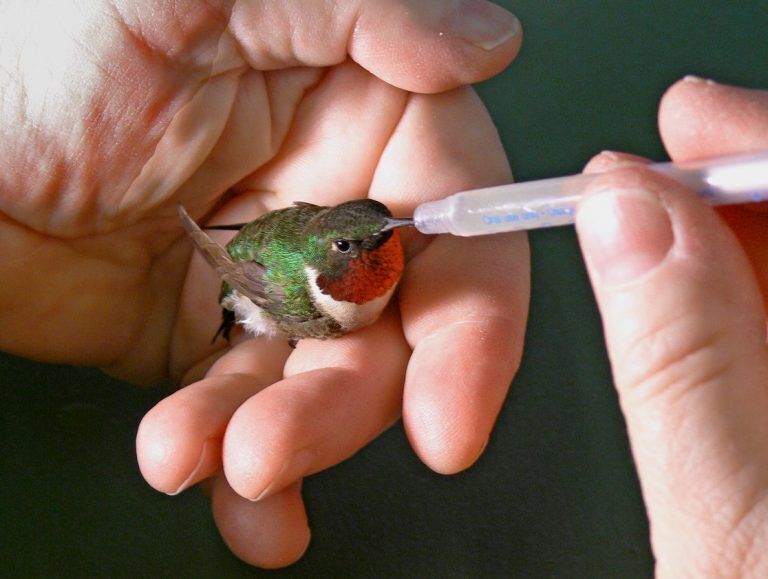- So you have found an Injured animal?
- How do you tell if an animal needs help?
- What animals need help & which should be left alone?
- Always remember that your safety comes first.
So you have found an Injured animal?
Welcome to Acadia Wildlife Center. Our facility is a non-profit wildlife rehabilitation clinic for injured native wildlife. If you have found what you believe is an animal in need, please call us (207) 288-4960 before doing anything, so we can discuss circumstances; safe capture and transport; and if the animal actually needs our help. If you get an answering machine, leave us a message and listen to the instructions carefully. Please be patient, we will call you back as soon as we can.
We care for mammals, birds, reptiles, and amphibians from mid-coast Maine, with the goal of returning healthy animals back to their homes in the wild. We offer advice in the areas of wildlife/human conflict, answering some 5000 phone calls a year and at any given time we have 100 patients in house.
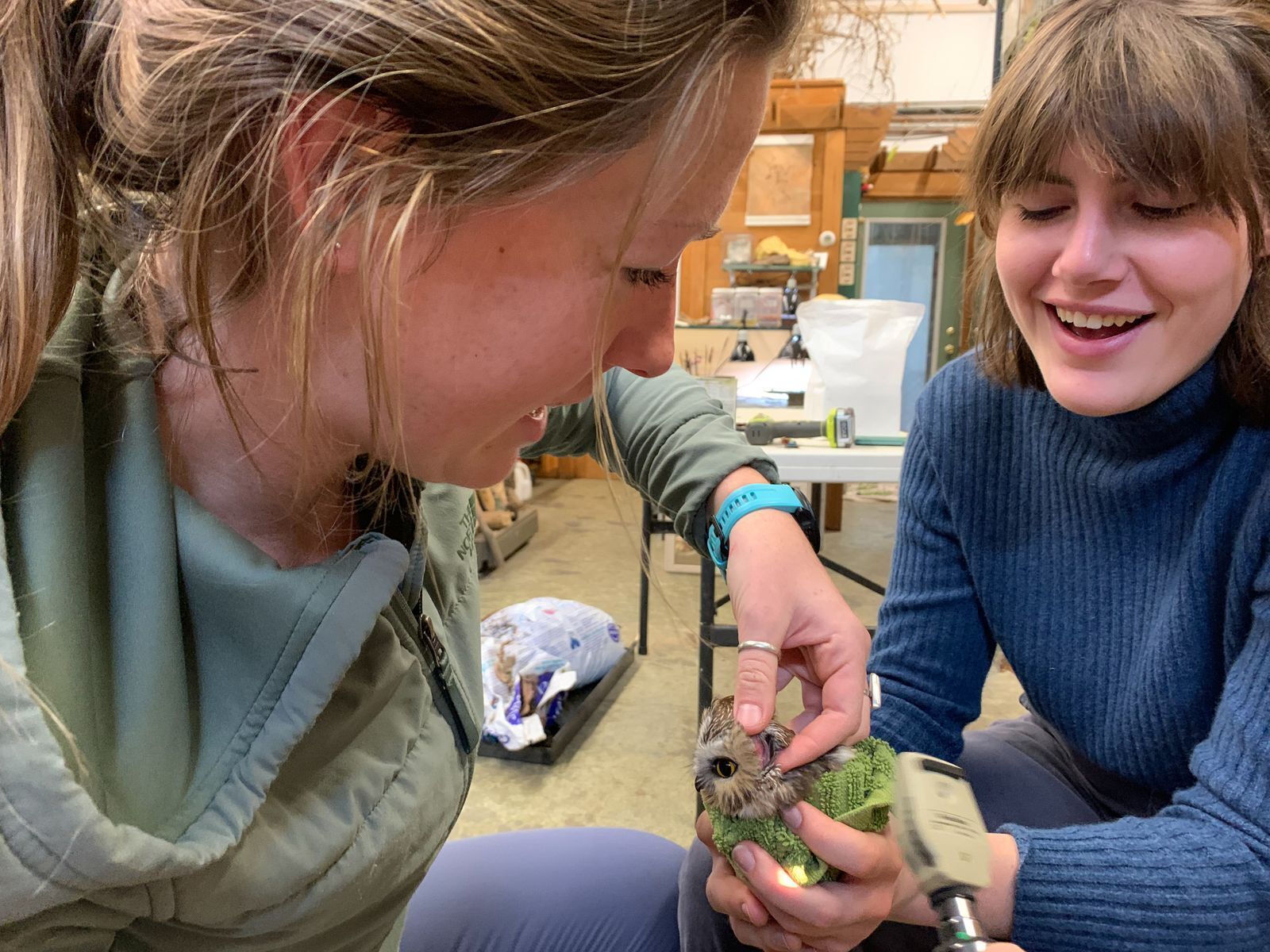
Our organization also includes a Nature Center, with native non-releasable ambassadors. We can accommodate small groups, of all ages, who are interested in environmental education and wildlife rehabilitation. Please check our Upcoming Events to register for a program, and our Environmental Education page for information.
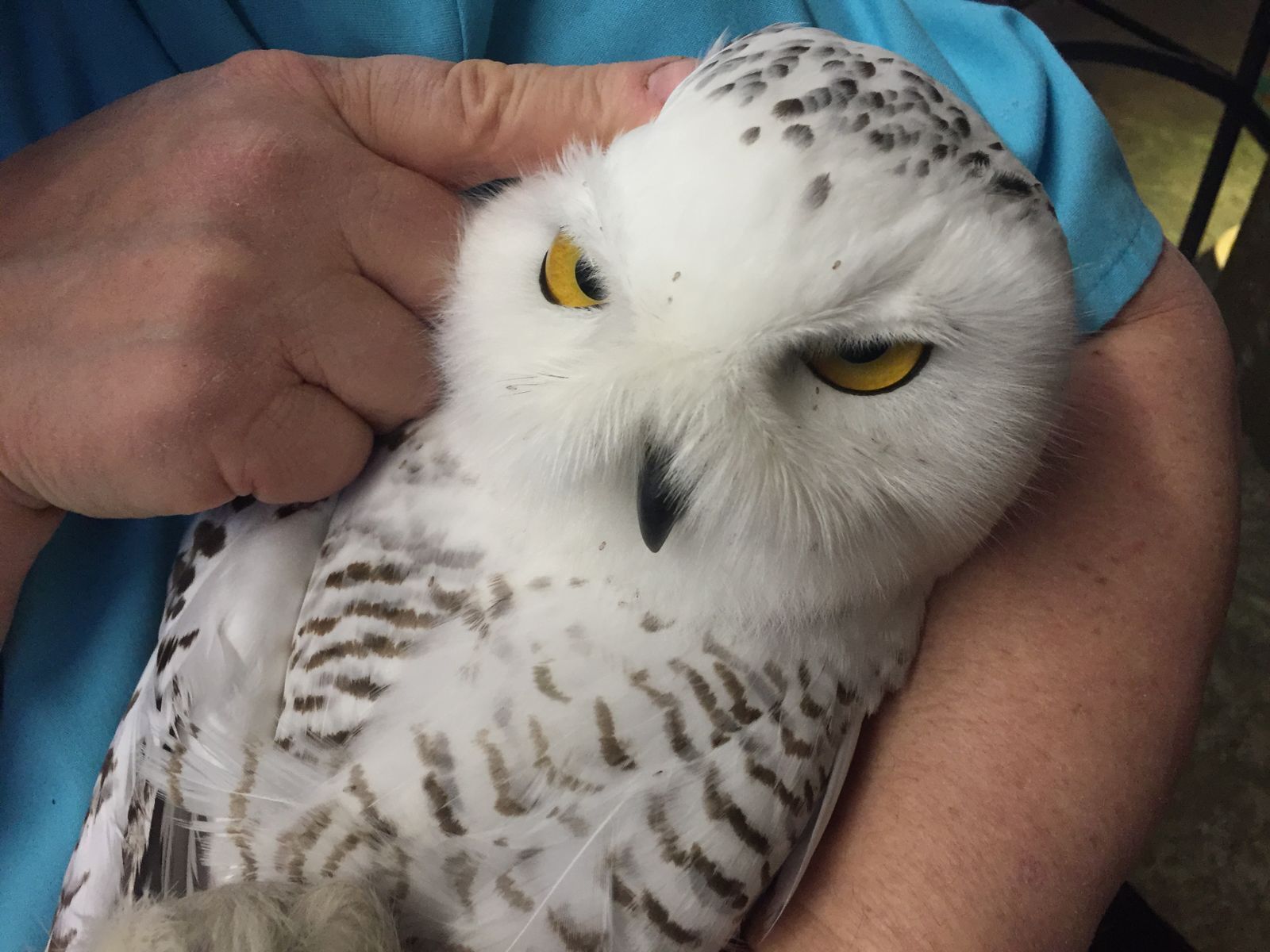
At some point in everyone’s life, we come upon an injured wild animal. Most people want to help but we don’t know what to do. Is it safe to pick it up? Is it legal to pick it up? Does it really need help? Will I get bitten? What if I just move it to the side of the road? Who do I call?
Acadia Wildlife Center is one of many licensed facilities across the state and around the world where help for injured wildlife can be found. If you are not in mid-coast Maine you can locate other facilities by going to Maine Department of Inland Fisheries & Wildlife or Animal Help Now. Most rehabilitators know others that would be close to your location and can recommend one.
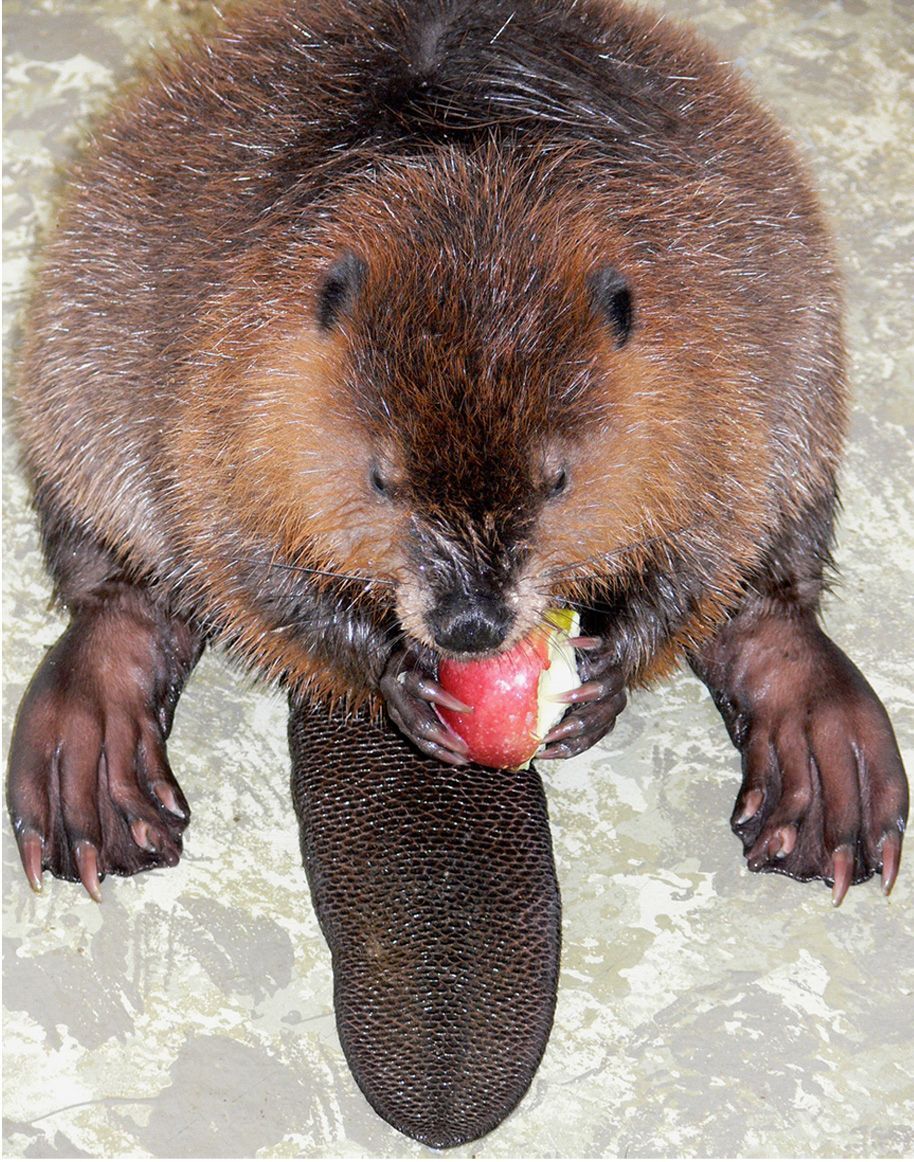
How do you tell if an animal needs help?
If one of the following scenarios is the case, you need to call a wildlife rehabilitator.
- animal is hit in the road
- animal is bleeding
- bird has hit window and is not recovering
- animal has an obvious broken wing or leg
- animal is lying out in the open
- animal is in a cat’s mouth
- bird not flying away when approached/ mammal is unable to move away from you when approached
- animal stuck to glue trap, caught in plastic etc.
- animals stuck in a trash bin, window well, or storm grate
- baby looks too young to be alone and is in the open
- baby crying incessantly, or climbing up your leg
- nest of birds has fallen
- animal is being held by a child or neighbor who thinks it might make a good pet
Each animal has a different natural history. Do not presume that a baby alone is in trouble as many species leave their young alone for long periods for their own safety. Do not presume that a normally nocturnal animal out in the daytime is in trouble. Ideally you would talk to a rehabilitator before handling an animal and make decisions together about what the animal needs.
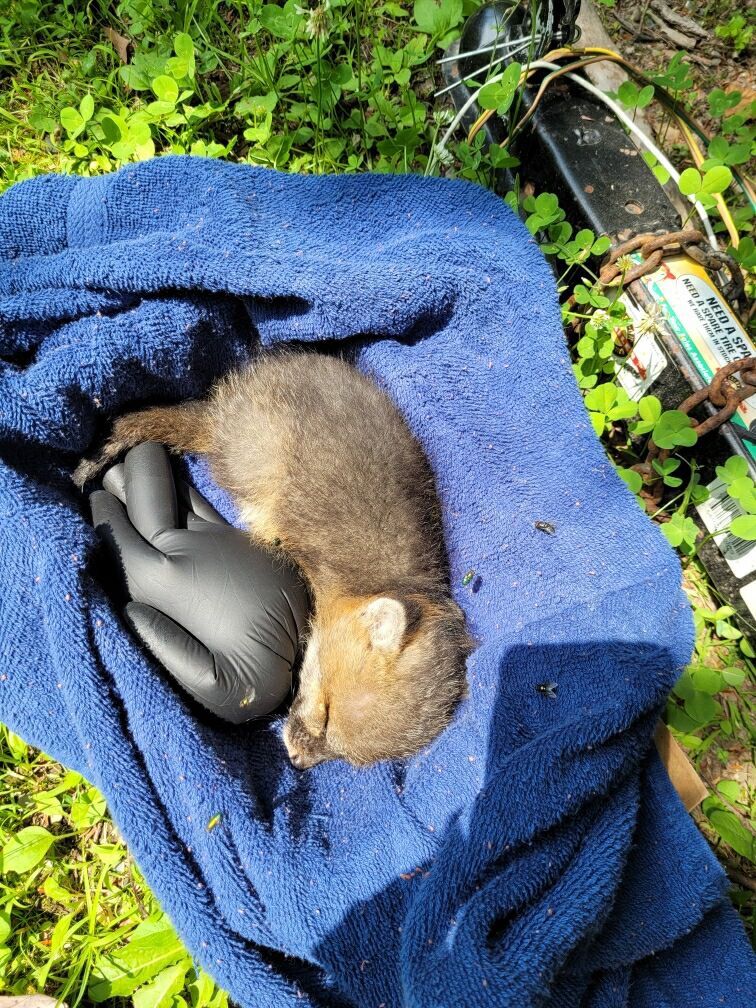
If you must intervene before talking to a rehabilitator, always use gloves or a thick towel to prevent being injured by a frightened and wounded animal. Remember that most mammals, even young ones can carry rabies which is fatal, gloves will help to protect you. Find a cardboard box, punch small air holes in it, add a towel at the bottom. Put the animal in the cardboard box and close the lid tightly. In the case of very small animals, tape the lid shut. Never give food, formula, or water. Heat can help any injured animal, quiet is essential.
Which animals should be left alone & which need help?
Sometimes babies are in your home where you don’t want them. Raccoons, bats, squirrels, weasels, and others, find human homes safe places for their young. But most humans would rather they didn’t. Trapping the adult and moving her is a death sentence for both adult and babies. By this decision you have made room for another adult to come in and take over the territory; put an adult animal in a place that she is not familiar with and won’t survive in; and left a litter of babies to die which believe me, you won’t like the smell of.
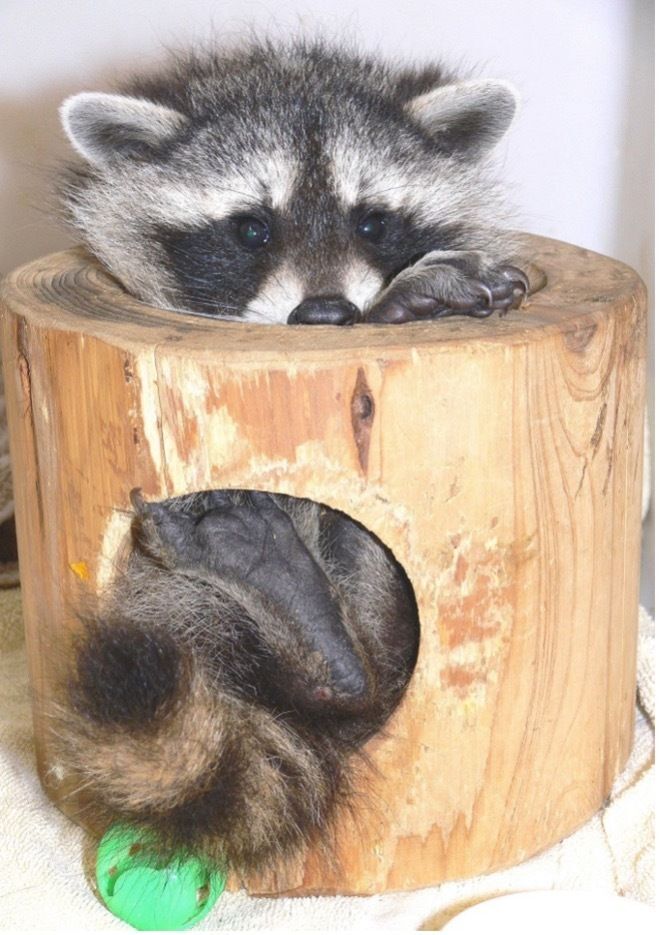
We rehabilitators are not happy about taking litters of babies when the homeowner has made no effort to find out other options and the babies will not grow up with the benefit of an experienced parent. Instead, call a professional BEFORE you do anything. We have many tricks up our sleaves to convince a mother wild mammal to move her litter out of your house and to another den without damage to anyone. If it doesn’t work, we will then all be happy knowing that we did the best we could to be compassionate, and now will do the best we can to raise the litter. Most mother animals will do just about anything to get their babies back, so reuniting usually works. Then labor for the homeowner begins as all openings into the house must be blocked or animals will just come back the next year. If you have a skunk under your porch, a woodchuck under your garden, or a porcupine under your barn floor, these all require individualized advice so call us BEFORE you do anything, and we will help. Babies with their mothers is always our goal.
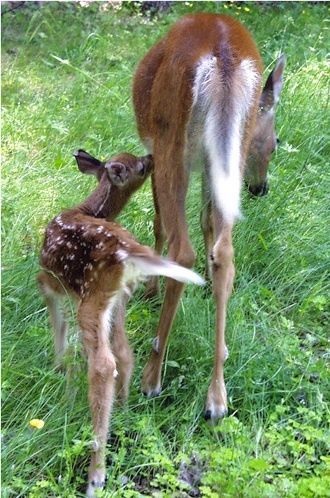
When you have decided that an animal needs your help, wear gloves and place the animal in a cardboard box on a towel, with small air holes, and close the lid. If it is a tiny animal or a baby, provide heat of some sort: a plastic bottle with warm water, covered and away from the animal; a hand warmer; or drive with the box on a heated seat. If it is a big bird or mammal catch it with a net or towel, keep the head covered and the feet (if a raptor) facing away from you. If the mammal or bird is too big or dangerous to handle, call for a warden or wildlife conflict officer to help. Most rehabilitation clinics (ours included) have no spare staff to come and pick up an animal, so you are responsible for getting it to us or finding an alternative means of transport. We will try and help.
Always remember that your safety comes first.
A frightened animal will try and bite. A rabies vector species, no matter what the age, can pass rabies to you and must be handled with great caution. And always remember that wild animals are professionals at what they do. They are highly skilled individuals of great beauty. They are not your pets. They do not like you or want to be your friend. But in this one world of ours, where we cause so much damage to wildlife, we owe it to them to help when we can. 85% of all patients in wildlife clinics worldwide have been injured by humans or domestic pets.
